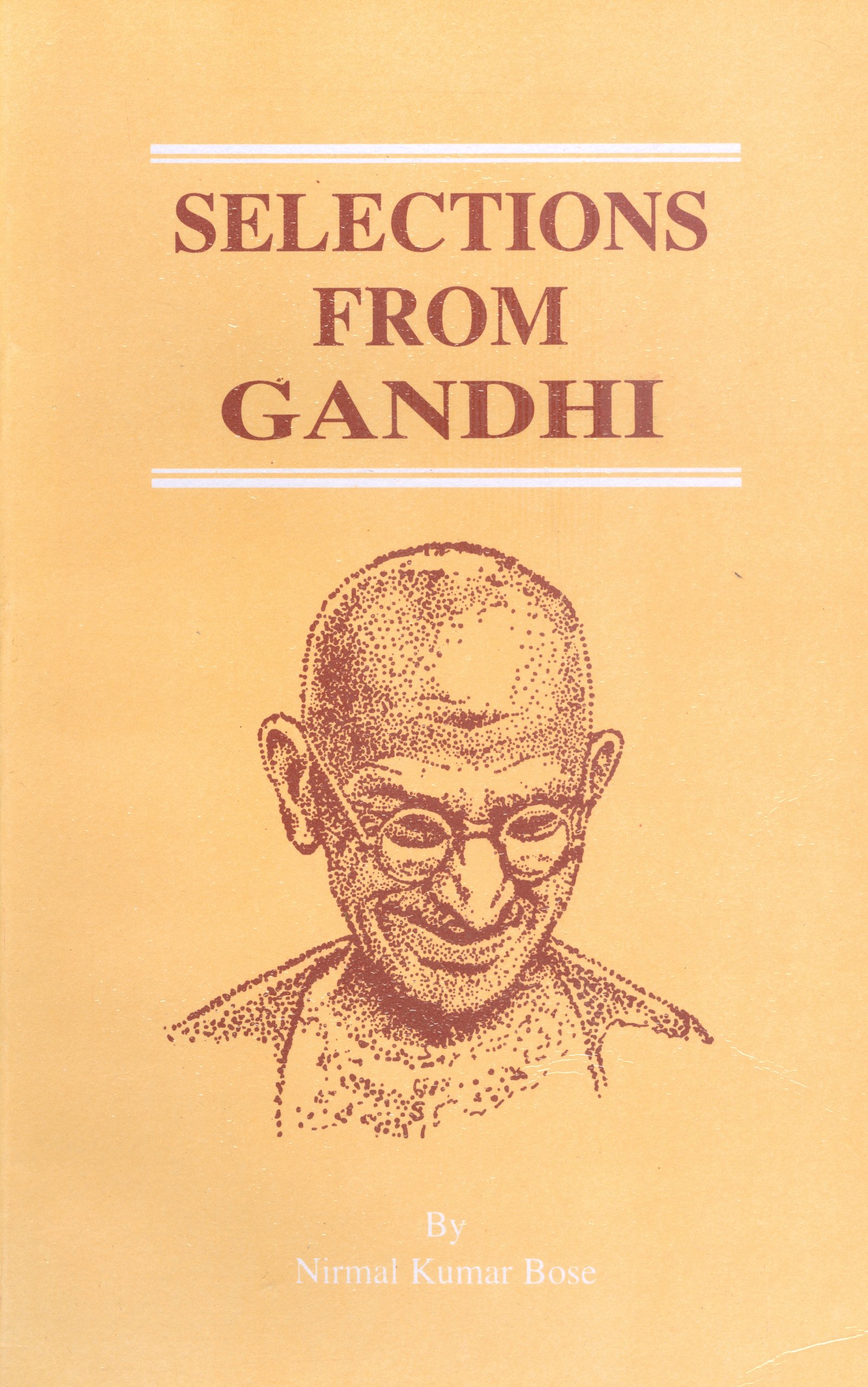|
SELECTIONS FROM GANDHI : By Nirmal Kumar Bose
Published by : Navajivan Publishing House, Ahmedabad, India
Pages : 320
Price : INR 75/-
ISBN-81-7229-173-6. About the Book: This book is perhaps the first ever connected account and documentation of Gandhi’s writings upto 1942. It is a record of ideals and aspirations, and of criticism of events and situations in the light of those ideals followed by Gandhi during his life. By their nature, they reflect the difficulties which confronted Gandhi from time to time; and also how he was able to meet them, more or less, successfully in the course of life’s experiments. The present selection does not pretend to do anything more than give a glimpse of what an interested reader can gather if he ventures through the forest of writings contained in the two journals namely, ‘Young India’, and “Harijan”, started by Gandhi himself. The third chapter, “Fundamental Beliefs and Ideas”, can be practically regarded as a summary of the rest of the book. It contains a summary of Gandhi’s views on various philosophical, social and political questions. The foundation of Gandhi’s life was formed by his living and growing faith in God, and in the oneness of the whole human family. So his ideas about God have been given first place in the first chapter. The discipline which every man should follow in order to realize his highest ideal, whether we call it God, or Truth, or Humanity, is common to all; and it comes in the second chapter. Chapters four to eight contain his views on the production and distribution of wealth, his criticism of existing arrangements in society, and the means he suggested, from time to time, for bringing about a more desirable transformation. Chapter nine is an exposition of his political idealism; while ten gives us his practical programme for securing economic as well as political independence for India. Gandhi proposed the non-violent technique, not only as a substitute for violent conflicts within a narrow social group, but in that of international relations as well. The chapter on “Satyagraha” [XV] (non-violent resistance) details how the technique has developed and actually taken shape on the Indian Soil. “Satyagraha” has moreover demanded from the Indian political worker a measure of idealism and discipline which is narrated in chapter sixteen. The seventeenth chapter contains Gandhi’s view on religion in its institutional aspect; while the eighteenth gives us his ideas on marriage and related topics. His opinion regarding the future role of women in society has also found place in this chapter. Education comes next; and this is followed by the last chapter covering subjects like art, music, swadeshi, the management of public institutions and so on. This book thus covers, in brief, a wide range of subjects and as one progresses in its study, one is often left with a thirst for fuller information on the subject of his interest.
|
